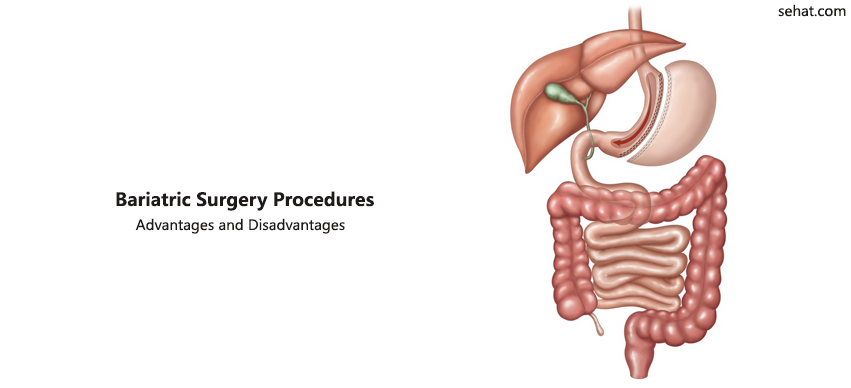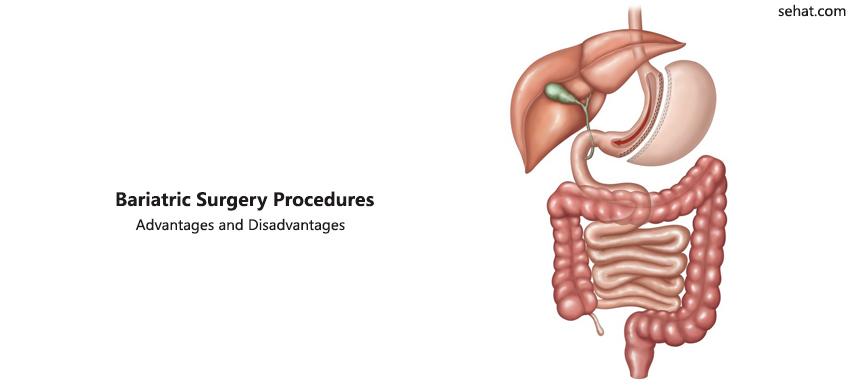Nanoparticle Therapy – An Emerging Cancer Treatment
5 Min Read


Obesity is considered one of the leading causes of illness and premature deaths. Excessive body weight increases the risk of serious life-threatening health conditions such as heart diseases, type 2 diabetes, sleep apnea, and certain cancers. Losing weight and maintaining it at a healthy level is the best way to reduce the risk of all these health conditions. But losing weight can be hard for those suffering from severe obesity. This is where the role of bariatric surgery comes into play. Bariatric surgery is considered the most effective weight loss surgery that functions by causing gastric restriction or malabsorption of nutrients or a combination of both these techniques.
There are four popular types of bariatric surgery procedures;
The Roux-en-Y Gastric Bypass, commonly known as the gastric bypass, is considered the most reliable type of weight loss surgery. There are two main parts of this bariatric procedure. First, the stomach is divided into two parts and a small stomach pouch roughly 1 ounce in volume is created. Next, the initial portion of the small intestine is divided and the bottom end of the divided small intestine is connected to the small stomach pouch. The success of the gastric bypass procedure lies in a number of factors. First, the new stomach pouch is considerably smaller that can hold less food which means fewer calories consumed. Secondly, bypass of the small intestine means less absorption of calories and nutrients. Lastly, rerouting of the food stream promotes changes in hormones in the intestine that suppress hunger and increase satiety.
The Laparoscopic Sleeve Gastrectomy is done by removing almost 80 percent of the stomach, leaving behind only a tubular pouch. The success of sleeve Gastrectomy depends on a number of factors. First, the new stomach holds considerably less quantity of food. Secondly, the surgery has a great impact on the gut hormones that helps to reduce hunger, improve satiety, and control blood sugar levels. The Sleeve Gastrectomy procedure also helps in the remission of diabetes.
The adjustable gastric band, often called the gastric band surgery involves an inflatable band that is secured around the upper part of the stomach, thereby creating a small pouch above the band. The smaller stomach pouch that is formed by placing the band can be satiated by consuming a small amount of food. However, satiety depends on the size of the opening between the pouch and the rest of the stomach formed by the gastric band. The size of the pouch can be adjusted by filling the band with sterile saline that is injected through a port present underneath the skin. Reducing the size of the opening is done gradually over time. The success of the band lies in the fact that it reduces hunger that helps the patient to reduce the number of calories that are consumed.
This procedure is very similar to gastric bypass. The procedure involves two parts. First, a small pouch is created by removing a section of the stomach. Next, a considerable portion of the small intestine is bypassed. The first portion of the small intestine (the duodenum) is divided just past the outlet of the stomach and a part of the last portion of the small intestine is then connected to the newly created stomach. When the patient eats, the foods directly pass to the new stomach pouch and empties into the last portion of the small intestine. A significant portion of the small intestine is bypassed by the food stream which results in a considerable decrease in the absorption of calories and nutrients.
The type of bariatric surgery you should consider for yourself depends on a number of factors such as the amount of weight that you need to lose, the health problems that you are looking to address, and the risk level involved with a particular procedure. An experienced bariatric surgeon can help you to determine the best procedure for you. Are you in search of a dependable and experienced bariatric surgeon in Lucknow? If your answer is yes then you can contact Dr.B.N. Shukla, a reputed Bariatric and Metabolic Surgeon who specializes in Bariatric Surgery, Bariatric Nutrition, and Obesity.